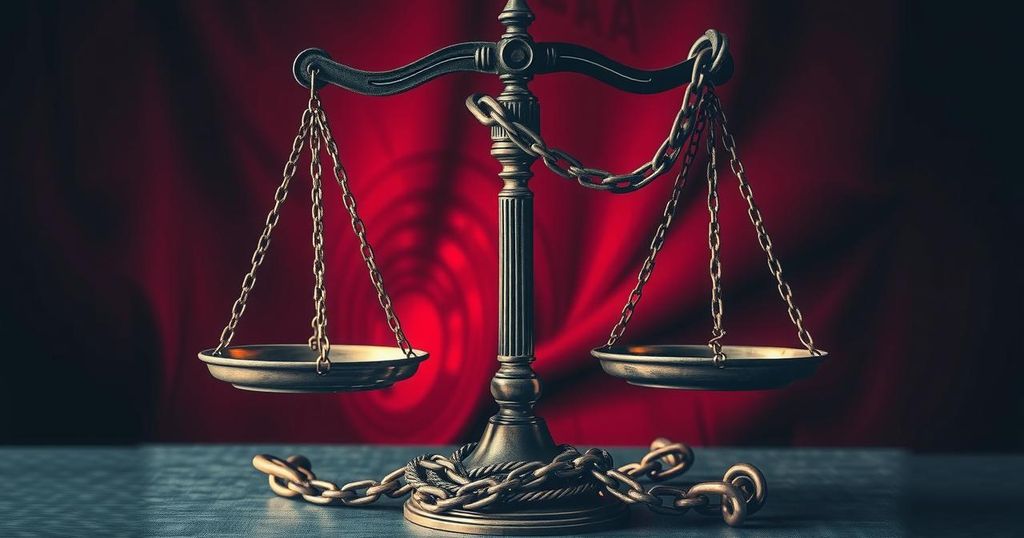Trump’s Deal With Bukele Poses Threat to MS-13 Dismantling Efforts
Amidst the increasing violence and systemic corruption tied to MS-13, a dramatic shift appears to be unfolding. The Trump administration’s recent deal with El Salvador’s president, Nayib Bukele, to return prominent gang members raises haunting questions about its effect on law enforcement efforts. As investigations uncover a potential complicity between two powerhouses, uncertainties deepen about whether safety or political gain is truly the priority of this partnership.
The Disturbing Details of the MS-13 Agreement
The Troubling Pact Between Two Politicians. In an unexpected twist to the ongoing battle against MS-13, the relationship between Donald Trump and El Salvador’s President Nayib Bukele raises eyebrows. Bukele, who seemingly allied with Trump’s deportation strategy, has accepted the return of significant gang figures from the United States in an eerie pact that may undermine years of efforts to dismantle the notorious gang. In light of his cooperation, the U.S. appears to be financially supporting Bukele’s initiatives, leaving many questioning if they’re sacrificing justice for political gain.
The Implications of Dismissing Charges
Vampiro: The Face of a Ruthless Operation. Enter Vladimir Arévalo Chávez, notorious for his managerial prowess in the world of organized crime. Known colloquially as “Vampiro,” this gang member has been linked to violent acts across multiple nations. His 2023 arrest in the U.S. represented a significant moment for law enforcement, particularly against a backdrop of ongoing investigations into the gang’s operations. Just as hope surged for a crackdown, the unexpected withdrawal of charges due to ‘national security concerns’ sent shockwaves through the justice system.
Navigating Justice and Politics
The Legal and Political Ramifications. Following Vampiro’s arrest, American prosecutors had hoped the case could serve as a blueprint for dismantling MS-13 operations. However, as charges were dropped, critics voiced worries about the lack of justice and the potential impact on public safety. Bukele’s prison, built for returning these powerful leaders, raises questions about how laws interact with political objectives. Are we prioritising immigration control over combating violent crime? Many analysts are uncertain about this strategy’s effectiveness.
Future Implications of Current Deals
The Road Ahead: A Tenuous Situation. As U.S. assistance flows into El Salvador, the fear is that the return of MS-13 leaders will spark a resurgence of gang power and violence in both El Salvador and the U.S. To some, this might seem like a careful balancing act—a way to negotiate with a brutal gang while ensuring political aims are met. Yet, the paradox of moral responsibility looms large: are we complicit in a process that could endanger lives for political strategy?
How does the Trump-Bukele deal affect MS-13 efforts?
The deal between Trump and Bukele is seen as a strategic alliance that could undermine efforts against MS-13 by facilitating the return of leaders to El Salvador.
Who is “Vampiro” and what is his significance?
Vladimir Arévalo Chávez, known as “Vampiro,” has a long history of violent crime associated with MS-13 operations across multiple countries.
What are the implications of dropping charges against gang leaders?
Dropping charges against gang leaders like Vampiro raises concerns about public safety and justice, shifting focuses from criminal prosecution to political negotiations.
Could the return of gang leaders lead to more violence?
Critics argue that the return of significant gang figures could reinvigorate MS-13, causing instability and violence in both El Salvador and the U.S.
Is the U.S. compromising justice for political benefits?
The primary concern is whether this political pact has more to do with deportation quotas rather than the serious legal effort to dismantle these gangs.




